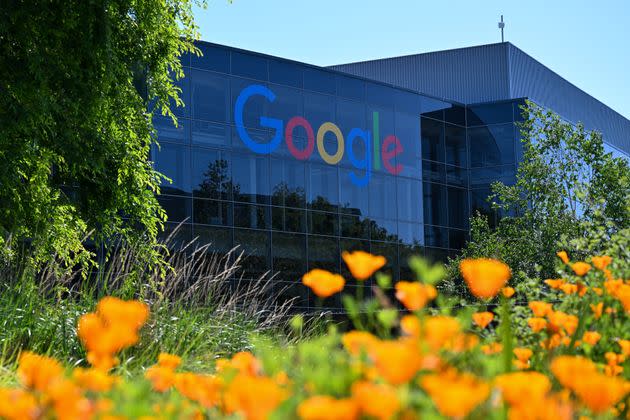The Biden Appointee Spearheading AI Accountability Has Close Ties To Google
- Oops!Something went wrong.Please try again later.

The head of the federal agency tasked with recommending AI regulations to the Biden administration has deep and longstanding ties to Google, raising questions about big tech’s power to shape critical safeguards around the rapidly emerging technology.
Alan Davidson currently leads the National Telecommunications and Information Administration, or NTIA, the agency now crafting recommendations on how federal regulators can hold AI companies accountable. But for years, he worked as Google’s chief lobbyist in Washington, fighting regulatory battles that helped establish Google as the behemoth it is today, before moving on to organizations with close financial ties to the company.
The NTIA has said it is investigating what kinds of data would be necessary to audit tech companies’ AI products to make sure they work as claimed, how regulators can foster trust in AI systems, and “what different approaches might be needed” when AI is used in health care and employment — sectors that can involve life-or-death decisions and where AI has the potential to amplify patterns of discrimination.
Although it does not have the authority to make regulations, NTIA’s recommendations will help form the basis of the Biden administration’s response to AI and machine learning.
“People are warning that there are really serious downsides possible to AI, and I would want a hard-headed regulator to run down those concerns,” said Jeff Hauser, the executive director of the Revolving Door Project, a watchdog focused on conflicts of interest in government. “Davidson is not likely, based on his CV, to be detached … If the government comes out and says this is all copacetic, I would feel more confident in that judgment if there were more distance between the regulators and the regulated.”
Google has already launched an AI chatbot, Bard, and is racing to launch new AI products alongside giants like Amazon, Meta and Microsoft, and upstart companies such as Anthropic, Inflection and OpenAI. The intensifying competition has put immense pressure on Google to maintain its dominance in the tech industry.
People are warning that there are really serious downsides possible to AI, and I would want a hard-headed regulator to run down those concerns. Davidson is not likely, based on his CV, to be detached.Jeff Hauser, executive director of the Revolving Door Project
Davidson joined Google in 2005 to help launch its in-house lobbying shop and served as its chief lobbyist in Washington until 2012. Early in his tenure, he convinced regulators to approve Google’s acquisition of the online ad platform DoubleClick, which the Justice Department now says Google used to illegally monopolize digital advertising. Google has called those claims unfounded.
After leaving Google, Davidson remained in its orbit, bouncing from various executive and senior roles at the New America think tank and Mozilla. New America has received more than $23 million from Google, longtime former Google CEO and Chairman Eric Schmidt, and affiliated nonprofits. Its main conference room was named the “Eric Schmidt Ideas Lab.” In 2017, New America ousted one of its scholars for applauding a $2.7 billion fine against Google by European antitrust regulators. New America did not respond to a request for comment.
Mozilla derives the majority of its revenue from a deal that makes Google the default search engine for its browser, Firefox. A spokesperson for Mozilla declined to comment.
The rapid advances in AI present a potential turning point for Silicon Valley’s dominant tech firms. Notably, the first company to capture national attention with the launch of a new AI product was not a household name, like Google or Microsoft, but the independent research lab OpenAI, with its splashy launch of ChatGPT in November.
Google reportedly sees the AI products it has in the pipeline as so pivotal to the company’s future that Sergey Brin, the Google co-founder lately absorbed with outside projects, has returned to company headquarters to work directly with the team building its flagship AI system.
“This is an existential moment for them,” said a Democratic former Hill aide involved in antitrust policy who asked for anonymity to speak candidly. “This could be a moment where emerging tech disrupts the current monopolies.”
“It’s obvious that Google is the biggest player who cares about this issue,” the former aide continued. “I cannot imagine Google doesn’t view Alan Davidson as an asset to them.”
Google did not respond to a request for comment.
A spokesperson for the agency Davidson now runs, NTIA, emphasized that the agency is only crafting recommendations for regulating AI, not making formal rules. NTIA would not say whether or how frequently Davidson had met or spoken with Google representatives over the agency’s AI recommendations.
“As part of this work, NTIA has been engaging with all stakeholders at all levels on this topic,” the spokesperson said. “NTIA received more than 1,400 comments from a variety of stakeholders.”
One such comment came from TechNet, a lobbying group that represents giants such as Google, Meta and Amazon. In a five-page letter, the group urged the NTIA to avoid imposing tough requirements on AI and largely allow the industry to police itself, writing, “TechNet believes NTIA should promote industry-led processes, standards, and codes of conduct.”
It is still not clear whether and how federal regulators will ultimately respond to rapid advances in artificial intelligence, although it is more likely to happen through administrative state or executive action. Congress, nearly 20 years after the founding of Facebook, has yet to even enact meaningful regulation of social media.
This month, the White House announced that seven major AI companies had agreed to voluntary guardrails. Experts have noted, however, that some of the voluntary commitments simply mirror AI companies’ existing practices, and none of them are enforceable by government regulators.
